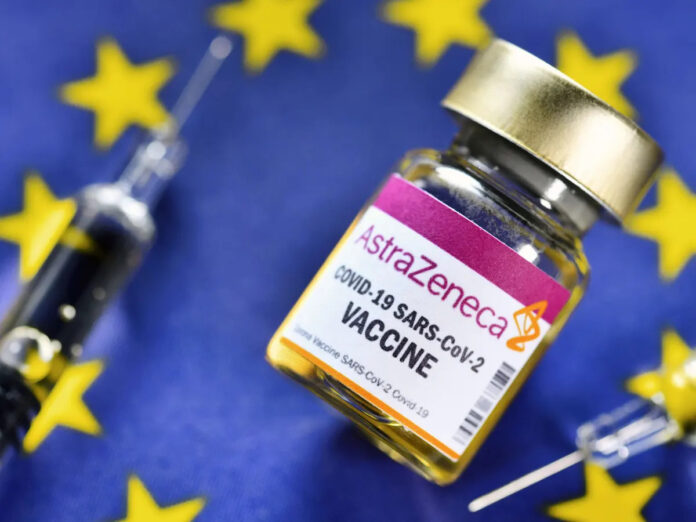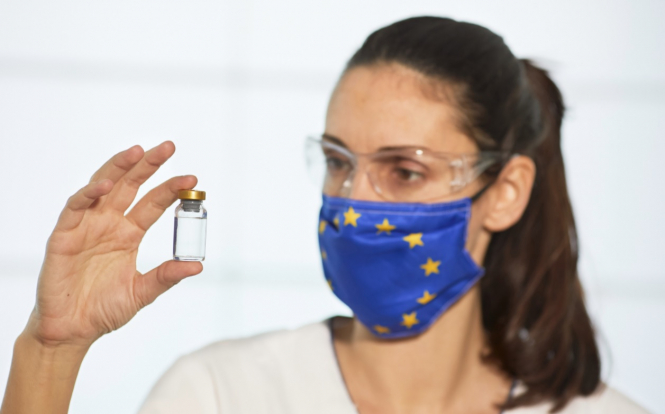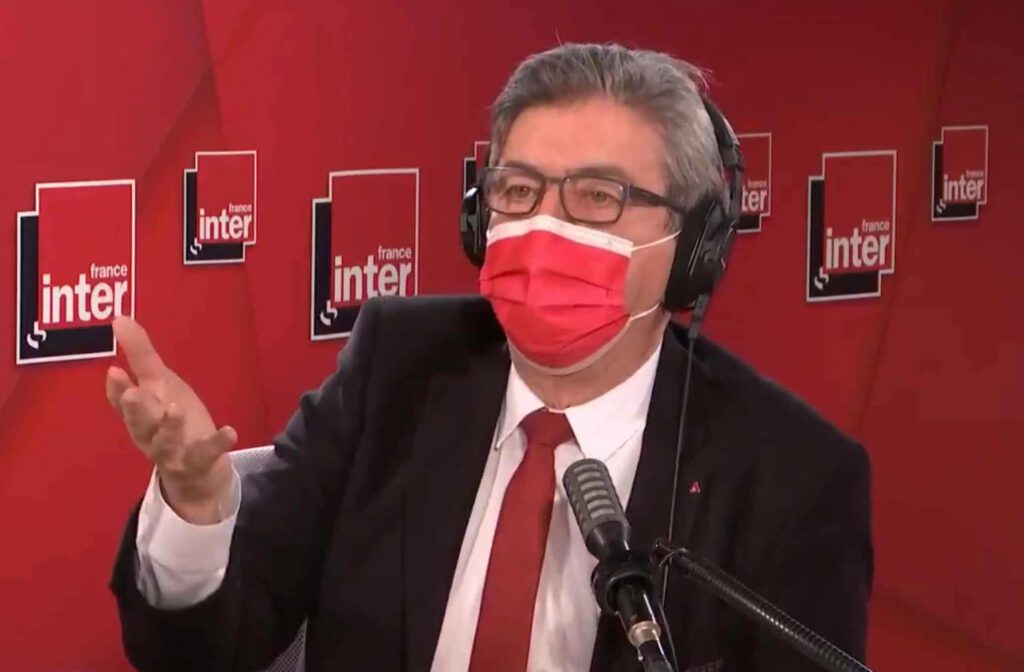
Last week, within 24 hours after the Netherlands and Ireland announced the suspension of AstraZeneca vaccination, France, Germany, Italy, Spain, Portugal, Sweden, Slovenia, and other countries introduced the same measures on the 15th and 16th because the amount of cases of possible adverse effects such as blood clots continuously increases.
The vaccines were produced faster than usual, which already raises social concerns about their safeties. Many leaders have to get vaccinated at first to comfort the public. However, the problematic vaccine of AstraZeneca becomes the biggest obstacle to recover the order and the reputation of parties. YouGov, a British polling firm, asked the opinions of around 8000 Europeans and discovered that 55% of German and 61% of French now see this vaccine as an unsafe product, and they are not willing to take it.

The EU has already failed again and again to handle the epidemic, its changeable and weak measures disappoint the public severely despite a huge part of Europeans who ignore the rules during the lockdown also causing the failure of the EU.
Accelerating vaccination is regarded as a final hope for containing the social health crisis, which determines the stability of the position of ruling parties, and their possibilities of winning in the following elections. Such a gain and loss is pretty visible, but the side effects of vaccines can be doubtful.
On 18th March 2021, just a few days after the majority of European countries suspended the AstraZeneca vaccination, European Medicines Agency’s safety committee confirmed that using AstraZeneca vaccines still have outweighing benefits than the risks despite possible links to rare blood clots. The safety committee admitted that this vaccine may have resulted in clotting problems, even fatally, but compared with the entire population, decades of cases can be seen as “rare”, “a causal link with the vaccine is not proven.”
On 14th March 2021, the French National Agency for Drug Safety stated that the discomfort rate of AstraZeneca vaccine in France is 0.66%, much higher than Pfizer vaccine’s 0.19% and Modena’s 0.12%. Jean-Luc Mélenchon, a French politician who serves in the National Assembly of France, and was a former member of the European Parliament, suggested on the 15th that the Chinese and Russian vaccines should be adopted decisively. He said: “If I were the president, I would definitely adopt the Chinese and Russian vaccines. Don’t engage in ideological practices in public health. Instead, we should choose those vaccines that have been proven to be effective.”

The Agence France-Presse said that after vaccination problems, 65% of Italians hope to choose their own vaccine brand. Among them, most people want to get the Pfizer vaccine (46%), followed by Modena (22%) and the Russian vaccine Sputnik V (10%). Only 9% are willing to get the AstraZeneca vaccine. But they will be disappointed since vaccines are still in a shortage, no one can choose their favorable vaccine brands and the authorities prefer to decide the allocation.
Feng Duojia, president of the China Vaccine Industry Association, said to the Global Times that AstraZeneca and China’s CanSino vaccines are technically almost the same, but AstraZeneca uses gorilla adenovirus, while CanSino uses human adenovirus as the carrier of the coronavirus protein gene, which has a higher level of suitability with the human body. It is almost impossible to cause thrombus with an adenovirus vector vaccine, if there are adverse events, the vaccine may have problems during the production or transportation. Before trying to take time for enough experiments to verify the problem, the EU already decided to resume AstraZeneca vaccination, which is absurd but also crucially reasonable if considering the political goals announced by several important forces in the EU.
According to the French newspaper Le Figaro, the AstraZeneca vaccine is the third most ordered COVID-19 vaccine in France. In theory, the vaccine is enough to vaccinate one-third of the country’s population. From a logistics point of view, France cannot provide alternative vaccines shortly, and the cost will be high and unnecessary. French Prime Minister Castel announced that “the goal of vaccinating 10 million French people will be achieved by mid-April,” so the suspension of the AstraZeneca vaccine will inevitably hurt this effort, and will undoubtedly threaten French President Macron’s promise that “as long as there is a vaccine in the refrigerator, the city will not be closed.”
On 21th March 2021, AstraZeneca pointed out that more than 17 million doses of vaccine have been injected in Europe and the United Kingdom, and there is no evidence that vaccination will increase the risk of blood clots, but it also doesn’t explain why this coincidence mainly happened to its vaccines.
At this moment, making big changes means admitting a huge strategic mistake even in the late stage of epidemic control, no one will do so if the situation might get better. The current controversies of vaccination have already foreshadowed the future chaos when European politicians ignore the risk of this vaccine and push the public to get untrustful vaccination.
(Source: Europa, BBC, The Guardian, Global Times, Télé 7 Jours, The Connexion)



